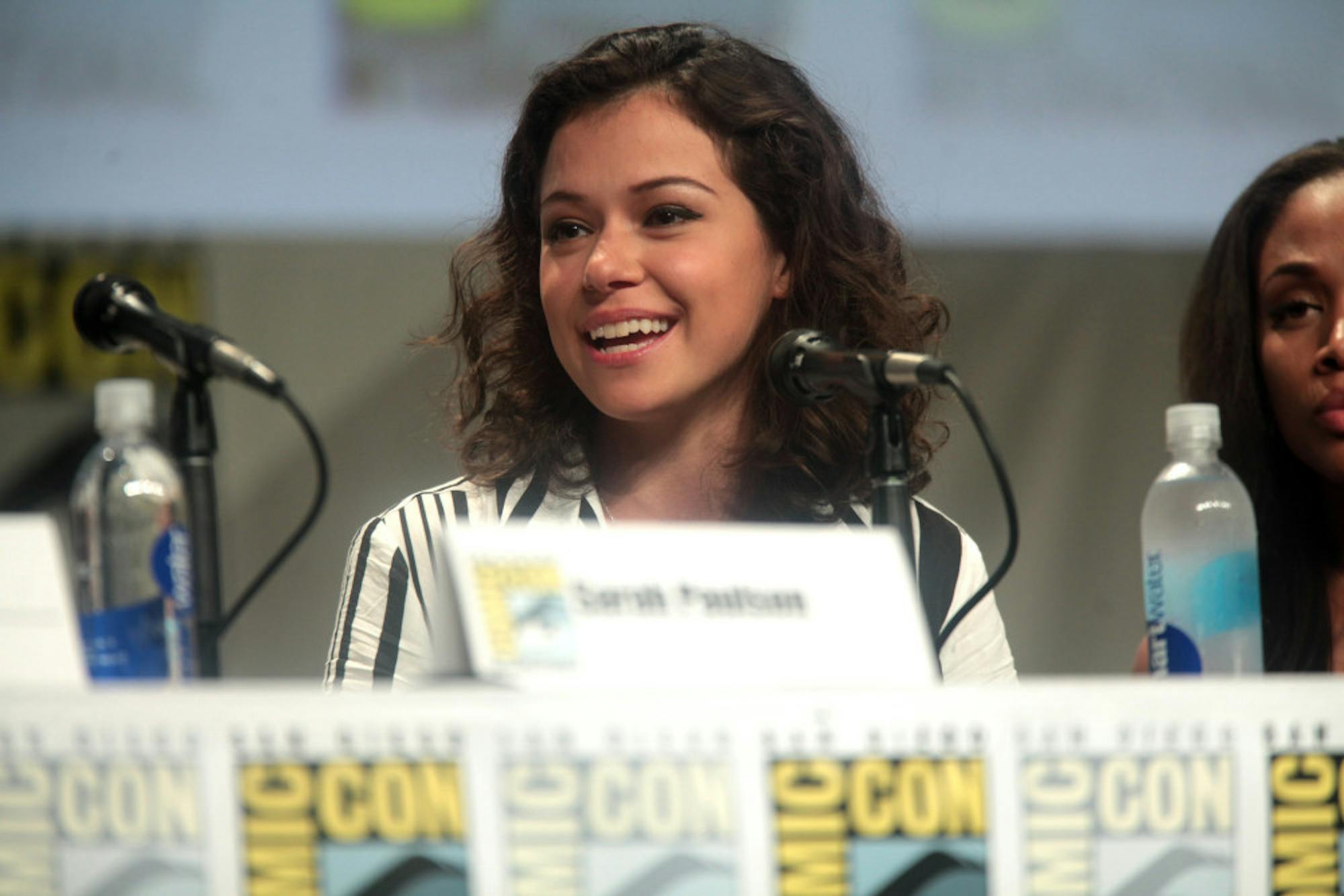BBC America’s sci-fi thriller “Orphan Black” (2013 — present) returned last week with a stellar fourth season premiere, promising stronger episodes ahead after a mediocre third season.
The episode, “The Collapse of Nature," transports viewers back in time to events before thefirst episode of the first season. Originally, "Orphan Black" fans were introduced to the show's world through Manning (Tatiana Maslany), a character who sees a woman who looks exactly like her step in front of a train and kill herself. Sarah, a con artist and petty thief, steals the woman’s purse and her identity; she studies videos of the woman, police officer Beth Childs (also Maslany), to learn her mannerisms. Additionally, she changes her hair, accent and clothes to fool Beth’s boyfriend Paul (Dylan Bruce) and her partner on the police force, Art (Kevin Hanchard). Sarah slowly discovers that Beth is not a long-lost twin but a clone, that there are potentially dozens of women who share her face, created as part of a pilot program, and that someone is trying to kill them.
“The Collapse of Nature," then, moves back in time to before Sarah's introduction to this world of scientific intrigue, focusing on Beth Childs. This creative framing decision is an excellent choice. Because both Beth and Paul are dead in the present timeline, the nature of the flashback is immediately apparent, but the episode nonetheless provides entirely new information which challenges the audience’s assumptions. We meet a new clone, a paranoid woman known only as MK (also Maslany); together, Beth and MK investigate their origins and keep ahead of Paul and other “monitors," people close to the clones who have been recruited to spy on them. The Dyad Institute, the shady organization which runs the clone program and supports a movement of “self-directed evolution” called Neolution, is also seen at its peak before Sarah and her sisters begin to wreak havoc.
Despite the many revelations as the premiere provided, little was clarified for the rest of the season. Beth and MK seem to have unearthed details of the cloning program that Sarah and her sisters, including Alison, Helena and Cosima (all Maslany), have not yet discovered in the course of the first three seasons. Self-awareness among clones remains a conflict; the fate of Cosima’s former lover and Dyad employee Delphine (Evelyne Brochu), presumed dead last season, is now debated. Mistrust runs rampant through most relationships, with masks and deceit featuring prominently in “Collapse of Nature."
Maslany, who has received only one Emmy nomination, despite playing about a dozen distinct characters with unique physicality and personality, could carry a lesser show with her acting alone. Fortunately, the writing and production quality are also consistently stellar, as are the strong cinematography and distinctive music. Nowhere has “Orphan Black” excelled as notably as in the layering of characters -- Maslany has portrayed Cosima pretending to be Allison, Allison pretending to be Sarah and so forth -- in its mastery of shocking twists and reveals. This episode does not disappoint in either of these realms.
Beyond its high entertainment value, “Orphan Black” is important and relevant in and of itself for its humanization of clones. The humanity of Sarah and her sisters is never in question; though the clones themselves worry about what they are and how others perceive them, they are continually presented as complicated, unique, conflicted individuals. Outside of the show, human cloning remains unlikely, but the questions posed in the show merit discussion. To the Dyad Institute, the clones are a science project, but the women live with very real effects of their origins. None of the clones, with the exception of Sarah and her twin Helena, can have children; many have developed serious or even fatal physical ailments, and they are constantly plagued by mistrust of and from family, friends and colleagues.
“Collapse of Nature” is an incredibly strong episode. The previous season lost audience interest for a myriad of reasons, but if this premiere is any indication, “Orphan Black” remains high-quality, must-watch TV.
'Orphan Black' hurtles into fourth season with strong premiere

Tatiana Maslany of "Orphan Black" speaks at 2014's San Diego Comic Con International.
Summary
In its strong fourth season premiere, sci-fi thriller "Orphan Black' raises new questions and offers a characteristically stellar performance from TV's hardest working actress, Tatiana Maslany.
5 Stars





